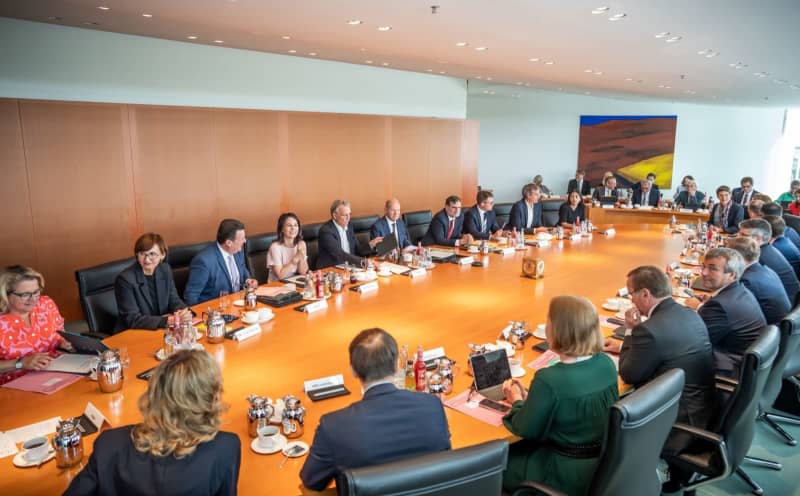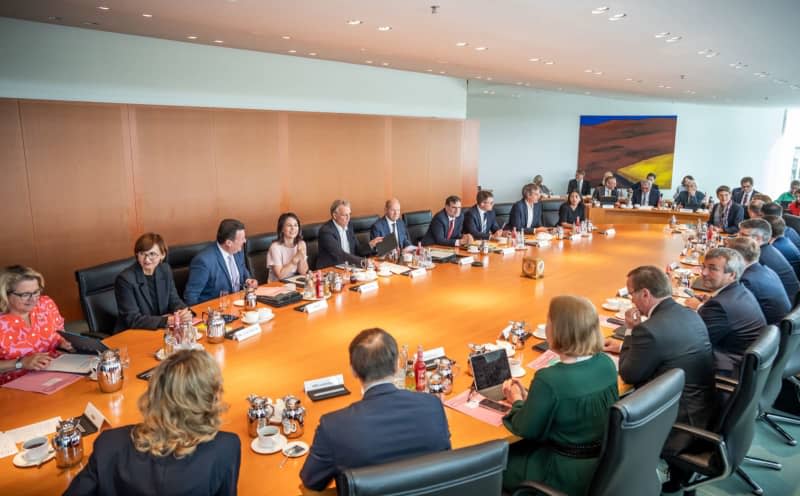
Germany’s Cabinet on Wednesday finalized the 2025 budget after weeks of wrangling, sending the €480.6 billion ($526 billion) package to parliament for approval.
The budget has been the subject of weeks of tense negotiations within Chancellor Olaf Scholz’s fractious – and unpopular – three-party coalition.
The €480.6 billion total is about €8 billion less than this year.
The budget now must be passed by lawmakers, likely in a vote to be held in November.
The initial framework proposal, which was agreed by the coalition leaders earlier this month, came under fire by critics who said it did not do enough to bolster the military and spur growth.
But Finance Minister Christian Lindner on Wednesday hailed the agreement as the “start of the economic turnaround” for Germany, as the Cabinet also decided on several economic policy stimuli to boost the recent weak growth.
“With our growth initiative, we are providing important economic policy impetus to make Germany more attractive as a business location,” Lindner said.
“New room for manoeuvre in the budget can only be created through more economic growth. To achieve this, we must increase our competitiveness and strengthen our innovative power,” he said.
There are plans to improve the depreciation of investments and the research allowance for German companies. In addition, the coalition aims to reduce bureaucracy and ease the burden on energy-intensive companies in terms of electricity prices.
Employees are to be incentivised to work more and longer, with overtime that exceeds the collectively agreed full-time working hours to be made exempt from tax and contributions. Tax incentives are planned for foreign skilled workers and company e-cars.
Stricter rules are planned for recipients of citizen’s income.
A total of 49 measures are planned and various amendments to the law are to be made by the end of the year.
EMEA Tribune is not involved in this news article, it is taken from our partners and or from the News Agencies. Copyright and Credit go to the News Agencies, email news@emeatribune.com Follow our WhatsApp verified Channel





